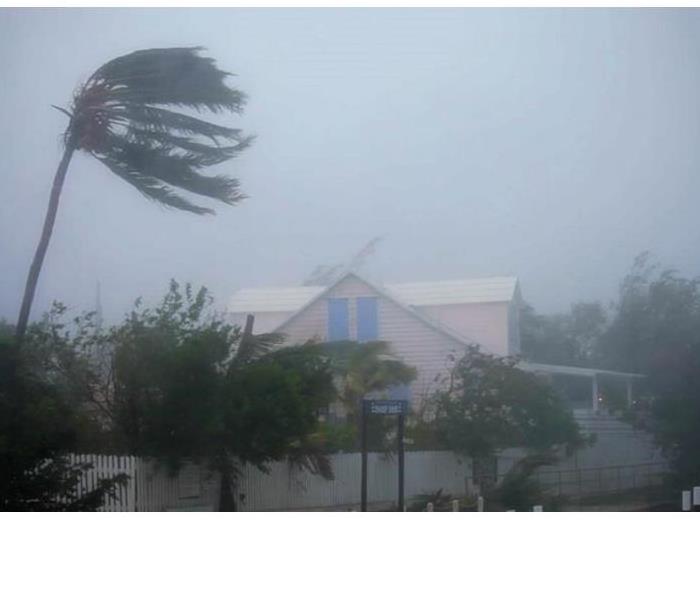Basic Tips for Storm Preparedness
6/2/2020 (Permalink)
Even if you do not live in an area that can be directly impacted by a hurricane, you may be affected by the severe weather conditions that result from the storm. Because we are all affected by severe weather activity, we should be prepared when events take place.
One important area of concern during a severe storm is our ability to keep our food safe. When severe weather strikes we are often left with no electricity. It is very possible that you will have a power outage to occur. Because we need to be prepared during bad weather, we need to follow a few safety tips such as:
- You should ensure that you have enough water for you and your family to drink. Store plenty of water in clean plastic or glass containers. It is recommended that at a minimum you should store at least one gallon of water per person per day. If the weather conditions are hot, then you may need to double this amount per person. Additional water will be needed for cooking, bathing and other household needs.
- Prepare water for storage and later use by adding four drops of chlorine bleach per quart of water (about 16 drops of chlorine per gallon), then stir the water to thoroughly mix.
- Seal water containers and label them as purified drinking water. Place the date on the water container and store them in a cool, dark place. Purified water stored in this way should be safe for long periods of time such as five years or longer.
- Prepare to have a three-day supply of food for your family to carry you through a short-term disaster situation. Choose foods that do not require refrigeration and if possible, require little water for preparation.
- Some ready-to-eat foods that should be considered are: canned meats, canned vegetables, canned fruit, juices, and soup. Some high-energy foods that should be considered are: peanut butter, jelly, crackers dried fruits, and jerky. Children will also enjoy having some hard candy and cereal bars available.
There are additional items that your family may need to have on hand during a short-term weather related disaster situation. Some of these items are:
- Radio - battery powered with extra batteries
- Flashlight - with extra batteries
- Candles
- Manual can opener
- Utility knife
- Plastic plates, cups, utensils
- Paper towels
- Plastic trash bags with ties
- Moist towelettes
- Chlorine bleach, cleaning supplies
- Personal hygiene items
- Blanket for each family member
- First aide kit
- Camp stove, fuel, lighter
There may be other special needs that your family may need to have available, such as diapers, baby formula, and medications.
For more information on individual, family and community preparedness, see the FEMA website at fema.gov/areyouready giving you a step-by-step guide to citizen preparedness.






 24/7 Emergency Service
24/7 Emergency Service
